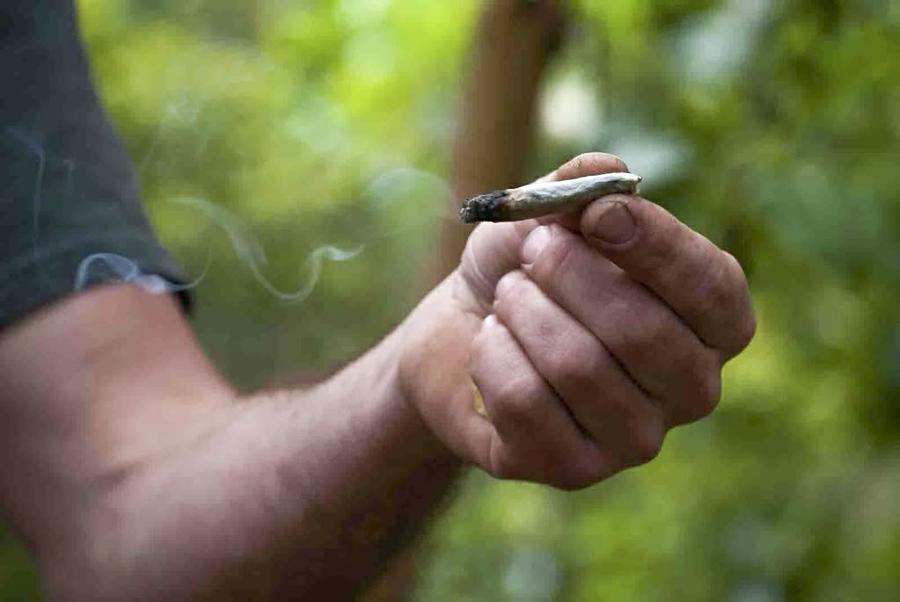The legalization of medical marijuana could be on the Missouri ballot next fall if an initiative petition spearheaded by the organization Show-Me Cannabis succeeds. Missouri would be the 24th state in the nation to legalize access to medical cannabis.
John Payne, the executive director and treasurer of Show-Me Cannabis, said that in order for the petition to make the ballot, it must receive signatures totaling 8 percent of the votes cast in the last gubernatorial election in six of the eight congressional districts in Missouri. Payne said that will equal about 160,000 signatures.
However, of those 160,000 signatures, Payne predicts that a third will be invalid due to unregistered voters or incorrect addresses. Payne said that about 250,000 signatures will likely needed in order to get it on the ballot.
Show-Me Cannabis will begin collecting signatures once the petition is filed with the Secretary of State’s office within the next few weeks, Payne said. To tackle the large number of signatures needed, he said Show-Me Cannabis will not only utilize the help of volunteers, but also will hire a professional signature gathering company.
“I will say that (it’s) not a cheap process, and so just to get on the ballot is going to cost over a million dollars,” Payne said.
After failing to qualify a similar initiative petition in 2012 for the ballot, Show-Me Cannabis has changed their approach since their last campaign. The group recently hired a professional pollster and professional consultant Jack Cardetti, who worked on the campaigns of Sen. Claire McCaskill, D-Mo., Secretary of State Jason Kander and Gov. Jay Nixon.
While Payne calls the attempt in 2012 a “noble effort,” he said back then the organization was newly founded and, while they knew a lot about cannabis and cannabis politics, they weren’t as well-versed in Missouri politics. Now, with an increased base of support and an advisory board made up of prominent allies throughout Missouri, Payne said he thinks Show-Me Cannabis is running a more efficient campaign.
“We’re working with some of the top ballot initiative attorneys in the state,” Payne said. “And so we’ve really made this a professional, experienced effort, whereas before I think of it as a very passionate, but also a very young and kind of inexperienced, effort.”
In a 605-person poll Show-Me Cannabis conducted, 64 percent of people said they would be inclined to vote for an initiative that would allow doctors to recommend medical cannabis for patients who have debilitating medical conditions, and 80 percent of the Missouri public said that they support that idea in theory.
Legalize Mizzou, a joint venture by MU National Organization for the Reform of Marijuana Laws and MU Students for Sensible Drug Policy, plans on participating by collecting signatures in October for the initiative petition as well as continuing to host events and traveling to Jefferson City to speak with representatives on the issue, MU NORML President Benton Berigan said in an email.
“If we don’t take interest in how drug laws are impacting our society, then we a doing a serious disfavor to future generations,” Berigan said in an email.
Berigan has been involved with MU NORML since his freshman year, when we was vice president of the organization. More than just working to collect signatures for the state-wide initiative, MU NORML and MU SSDP are working to amend laws regarding cultivation of cannabis at a local level, as well.
Legalize Mizzou is working with mid-Missouri NORML attorney and chairman for Show-Me Cannabis Dan Viets in order to draft an expansion to the medical cannabis and decriminalization ordinances passed in 2004 to include language about cultivation.
“This expansion would substantially reduce the harsh penalties associated with cultivating less than six plants in a domicile and provide protection for seriously-ill people with a physician’s recommendation,” Berigan said in an email.
“Seriously-ill people” would include people who suffer from serious conditions where marijuana may provide relief — such as post-traumatic stress disorder, HIV/AIDS and forms of epilepsy, and also in cases of harmful side-effects in the treatment of cancer — and have been recommended by a licensed physician.
The six plants must also only be grown indoors and be in a locked enclosure, not visible from exterior windows and not accessible to children.
“It’s crazy to imagine that 600 miles west of Columbia, residents in Colorado can cultivate up to six plants in their home and it is completely legal, yet if someone is Missouri tries to germinate a single cannabis seed, they can spend a substantial amount of time in prison, possibly a lifetime, and are labelled as criminals and felons,” Berigan said.
In Missouri, attempting to germinate a single seed currently carries felony charges and sentences of five to 15 years in prison.
Payne and Berigan urge young adults to register to vote and even do something as simple as talking to their parents or grandparents about the issue as they work on changing cannabis laws throughout the coming months.
“When it comes to outdated and harsh laws, until the Missouri Legislature takes leadership on the issue of cannabis, it is up to cities like Columbia to determine what is best for their local community,” Berigan said.








